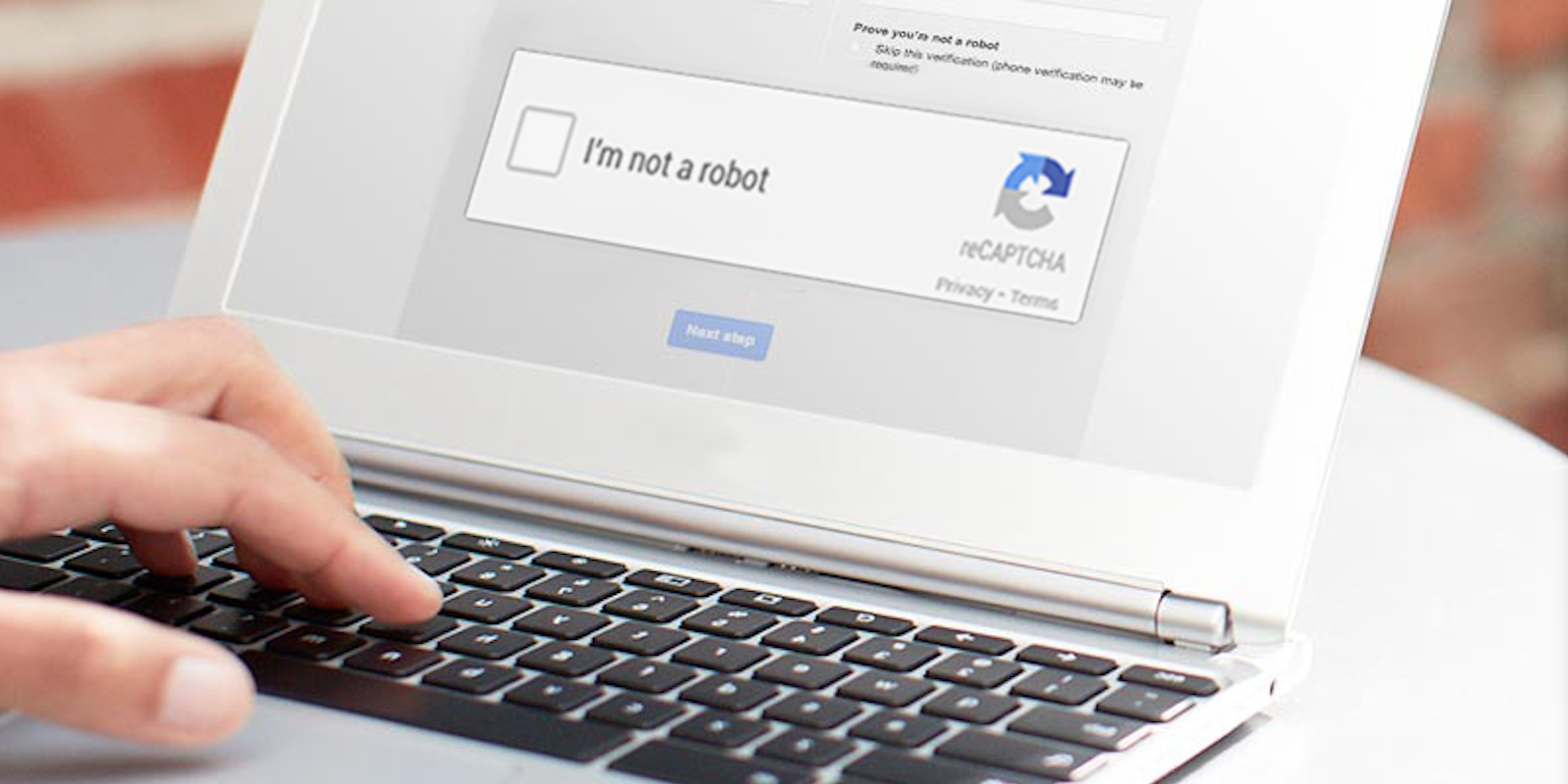Every time I have to answer one of those complicated CAPTCHA queries (“Write the text you see in the box above!”), a small part of me questions my own humanity. Is that a T or a Z? Could it be a 7? Am I a robot, or do I just need better glasses? Luckily, my secret robot fears will soon be quelled. Google updated it’s reCAPTCHA system, and now it can automatically tell if you’re a bot or not.
This journey begins back in 2014, when Google first took the complication out of those bot identification puzzles with reCAPTCHA. On sites using that reCAPTCHA system, you only need to tick off an “I’m not a robot” box to confirm that you are not in fact a click-happy spambot or cyborg. Now though, you won’t even have to go that far to prove you’re human. Google can automatically tell if blood or code runs through your veins.
Google doesn’t go into detail about how exactly its invisible system functions, but we presume it may work a few ways. Firstly, it could use your mouse movements to identify if you’re human. Researchers discovered that the speed and accuracy with which you move your cursor could can reveal whether you’re feeling an emotion such as confusion or anger. Emotion is a fairly strong indicator of mortality.
Alternatively, Google could be using some sort of digital fingerprinting technique. By tracking nonstandard user data such as cookies, web history, plugins, and even browser exploits, Google could know for a fact that you’re a human browsing the internet. Or, it could be using some other technique—the company says only that they’re employing “a combination of machine learning and advanced risk analysis that adapts to new and emerging threats.”
However, in some cases, you could still see Google’s old reCAPTCHA. If Google isn’t sure whether you’re a bot or not, you will still be shown that “I’m not a robot” checkbox. And of course, not every website uses Google’s reCAPTCHA technology, so you may still get the oddball CAPTCHA nonsense.
H/T Ars Technica


